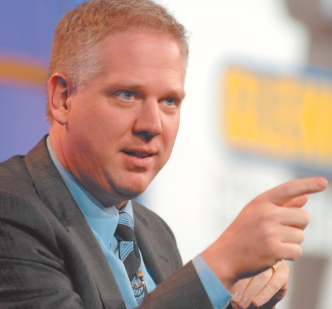Case Study
CASE STUDY
Host: The Origins of Talk Radio
by David Foster Wallace
The origins of contemporary political talk radio can be traced to three phenomena of the 1980s. The first of these involved AM music stations getting absolutely murdered by FM, which could broadcast music in stereo and allowed for much better fidelity on high and low notes. The human voice, on the other hand, is midrange and doesn’t require high fidelity. The eighties’ proliferation of talk formats on the AM band also provided new careers for some music deejays—e.g., Don Imus, Morton Downey Jr.—whose chatty personas didn’t fit well with FM’s all-about-the-music ethos.
The second big factor was the repeal, late in Ronald Reagan’s second term, of what was known as the Fairness Doctrine. This was a 1949 FCC rule designed to minimize any possible restrictions on free speech caused by limited access to broadcasting outlets. The idea was that, as one of the conditions for receiving an FCC broadcast license, a station had to “devote reasonable attention to the coverage of controversial issues of public importance,” and consequently had to provide “reasonable, although not necessarily equal” opportunities for opposing sides to express their views. Because of the Fairness Doctrine, talk stations had to hire and program symmetrically: If you had a three-hour program whose host’s politics were on one side of the ideological spectrum, you had to have another long-form program whose host more or less spoke for the other side. Weirdly enough, up through the mid-eighties it was usually the U.S. right that benefited most from the Doctrine. Pioneer talk syndicator Ed McLaughlin, who managed San Francisco’s KGO in the 1960s, recalls that “I had more liberals on the air than I had conservatives or even moderates for that matter, and I had a hell of a time finding the other voice.”
The Fairness Doctrine’s repeal was part of the sweeping deregulations of the Reagan era, which aimed to liberate all sorts of industries from government interference and allow them to compete freely in the marketplace. The old, Rooseveltian logic of the Doctrine had been that since the airwaves belonged to everyone, a license to profit from those airwaves conferred on the broadcast industry some special obligation to serve the public interest. Commercial radio broadcasting was not, in other words, originally conceived as just another for-profit industry; it was supposed to meet a higher standard of social responsibility. After 1987, though, just another industry is pretty much what radio became, and its only real responsibility now is to attract and retain listeners in order to generate revenue. In other words, the sort of distinction explicitly drawn by FCC Chairman Newton Minow in the 1960s—namely, that between “the public interest” and “merely what interests the public”—no longer exists.

More or less on the heels of the Fairness Doctrine’s repeal came the West Coast and then national syndication of The Rush Limbaugh Show through Mr. McLaughlin’s EFM Media. Limbaugh is the third great progenitor of today’s political talk radio partly because he’s a host of extraordinary, once-in-a-generation talent and charisma—bright, loquacious, witty, complexly authoritative—whose show’s blend of news, entertainment, and partisan analysis became the model for legions of imitators. But he was also the first great promulgator of the Mainstream Media’s Liberal Bias (MMLB) idea. This turned out to be a brilliantly effective rhetorical move, since the MMLB concept functioned simultaneously as a standard around which Rush’s audience could rally, as an articulation of the need for right-wing (i.e., unbiased) media, and as a mechanism by which any criticism or refutation of conservative ideas could be dismissed (either as biased or as the product of indoctrination by biased media). Boiled way down, the MMLB thesis is able both to exploit and to perpetuate many conservatives’ dissatisfaction with extant media sources—and it’s this dissatisfaction that cements political talk radio’s large and loyal audience. 
Source: Excerpted from David Foster Wallace, “Host: The Origins of Talk Radio,” Atlantic, April 2005, 66–68.